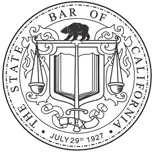1,000+ Families Served | Proven 91% Success | Free Consult with Family Law Specialist
Need a Spousal Support Attorney in El Centro, CA?

We understand that spousal support is more than just a financial obligation—it plays a crucial role in maintaining stability and a fair standard of living after a separation or divorce. Whether you are seeking support, challenging an unfair order, or requesting a modification due to changes in income or circumstances, our experienced spousal support attorneys are here to guide you with clarity, compassion, and precision.
Spousal support can often become one of the most contested issues in a divorce. Our team has extensive knowledge of California spousal support laws, guidelines, and court procedures, helping clients pursue fair and accurate support arrangements that reflect each family’s unique financial situation.

Why You Should Hire JWB Family Law?
At JWB Family Law in El Centro, CA, we understand that spousal support matters can be complex and emotionally challenging. Our experienced attorneys provide clear, compassionate guidance to help you secure a fair support arrangement while protecting your financial future.
Led by Certified Family Law Specialist Jane Wesley Brooks, our team has extensive knowledge of California spousal support laws and court procedures. We assist clients in establishing, modifying, or enforcing spousal support orders, ensuring outcomes that are fair, accurate, and tailored to each family’s unique circumstances.
Contact JWB Family Law today to schedule a consultation and learn how our skilled spousal support attorneys in El Centro, CA can help you achieve a fair, practical solution for your family.
Why Choose JWB Family Law Offices
Testimonials
What Our Clients Say
About JWB Family Law
JWB Family Law specializes in family law, including divorce. No matter what type of family-related dispute you’re facing, our firm is trained to resolve each property division, child visitation arrangement, or spousal support plan according to your rights, needs, and expectations.
JWB Family Law is a settlement-oriented law firm from day one. We want to resolve your case quickly and efficiently, but always in your best interests. When the case calls for resolution by trial, you will find our team to be experienced trial lawyers with the skills necessary to represent your interests in court.
We offer a 15% discount to military personnel and their spouses, and hospital healthcare workers.
Spousal Support in [ppclp_city]
Frequently Asked Questions
Tell Us Your Story
"*" indicates required fields
Contact us










